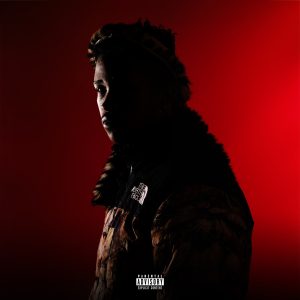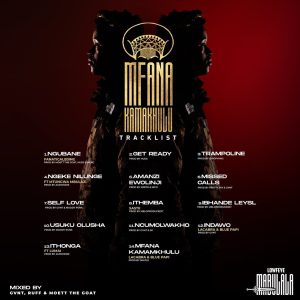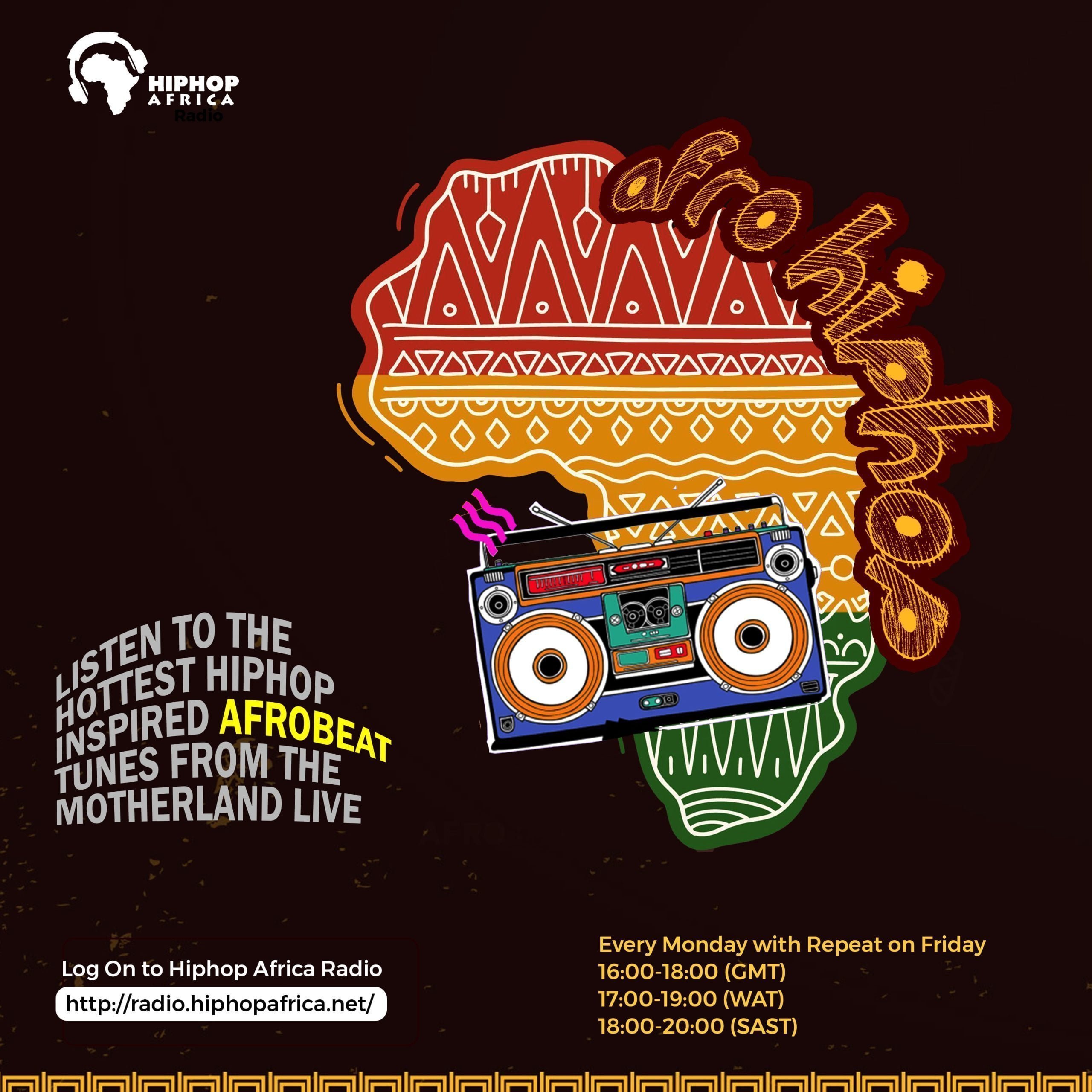I’m immensely grateful for the day I stumbled upon Eattz’s Twitter account, as it has been a gateway to extraordinary talent over the past few years. Through her, I’ve discovered artists like Loatinover Pounds, Tyson Sybateli, Sc23, and Thato Saul, to name just a few. Yet, one of my most treasured finds, introduced by her last year, has been Lowfeye, a rapper from Durban, South Africa.
I vividly recall a sleepless night, idly scrolling through Twitter, when I encountered an image that stopped me in my tracks. It depicted two young men, casually seated in a red taxi—or kombi—their arms draped lazily out the windows. The photograph, seemingly captured at a bustling taxi rank in Mzansi, perfectly encapsulated the spirit of South Africa’s taxi driver culture, particularly that of KwaZulu-Natal. You may wonder what makes this image so memorable; it serves as the cover art for “UnoXhaka,” a collaborative project by Lowfeye and LaCabra, released on May 26th, 2023.
Listen to”UnoXhaka” by Lowfeye & LaCabra here
After seeing Eattz championing this project, I eagerly immersed myself in its rich soundscapes, gravitating toward tracks like “Trans,” “UnoXhaka Freestyle,” “Ndishi,” and “Namanje.” I still recall spirited debates with my producer friend Yashu, where we would spend hours deliberating over which track could claim the title of the project’s finest.
Fast forward to more than a year later, after a string of singles such as “Glitch”, “Kmele Ngizwe”, and “Indaba Ndaba”, just to name a few and after the growth of the Qwellers collective of which Lowfeye is a part of, the rapper has released a solo mixtape titled Mfana kaMakhulu.


“Mfana KaMakhulu” cover art & tracklist
Released on August 30, 2024, “Mfana kaMakhulu” invites listeners into the vibrant sonic world of Lowfeye, where trap, hip hop, afrosoul, maskandi and AfroPop lithely intertwine to create a silky fluid mixtape. This mixtape breathes a new contemporary feel to South African Hip Hop shooting Lowfeye into instant ubiquity in the South African hip hop landscape as he currently boasts of over 30 000 monthly Spotify listeners.
Listen to “Mfana kaMakhulu” here:
At the heart of this project lies uMabulala—his moniker meaning “killer”—proclaiming his supremacy in the rap arena, where he boasts of his distinctive flow and newfound success. Throughout the mixtape, he is shrewd and relentless, full of energy and an appetite for destruction. This is particularly evident in hard-hitting and blistering trap anthems like “Ngubane” featuring FanaticalB3ing, “Get Ready (Freestyle),” and “Trampoline.” The clever infusion of Durban slang and Zulu in his verses adds a layer of relatability, resonating deeply with South African listeners.
Lowfeye sustains this unique flair in tracks such as “Ngeke Nilunge,” featuring rising rap star Umntungwambulazi, where he asserts that his competition is simply outmatched, rendering any attempts to challenge him futile. The lead single, “Amanzi eWolinji”(Orange Juice), serves as a reflective journey into his ascent to stardom, where he raps about his fashion sense and distinct flows, proclaiming himself a gem in his city. Lines like “Back in my town I know they are watching me, ngiphethe iRemote” capture this sentiment with vivid imagery. Both these songs give us a glimpse into his luxuriating life and immerse us fully into the rapper’s new found lifestyle.
A pivotal moment that showcases his versatility is the AfroPop-infused “Missed Calls,” a heartfelt exploration of unrequited love that many can relate to. Here, Lowfeye vulnerably narrates the pain of being ghosted, expressing his feelings with raw honesty. The subsequent track, “Self Love,” emerges as a powerful declaration of self-empowerment, where he resolves to nurture himself, embracing the theme of self-love. These poignant moments elevate the mixtape, with exceptional sequencing and transitions creating an immersive auditory journey.
“Ithemba,” featuring Sastii, stands as a luminous masterpiece. In this track, the rappers delve into the transformative power of faith, reflecting on their growing recognition across South Africa. They proudly wear their Adidas while uplifting listeners with a mantra of gratitude and ambition—encouraging them to wake each day with thanks and pursue their dreams, for faith without action is merely hollow. This theme resonates in “Usuku Olusha” (brand new day), where Lowfeye emphasizes the importance of appreciating each sunrise over an infectious AfroPop beat infused with the heartfelt Amapiano element— known as the log drum , which takes the production of the song to summit.
Lowfeye doesn’t shy away from where he is from—he is boldly Zulu and proud. This pride is vividly expressed in songs like “Ncumolwakho,” which proves that Zulu rizz is truly unparalleled. In this track, Lowfeye intricately paints a portrait of a woman’s beauty, comparing it to the sweetness of honey, declaring her completeness, and urging all to bow down before her allure. The use of rich Zulu language deepens the song’s appeal, offering a window into the vibrant world of the Zulu people.
In “Indawo,” featuring fellow Qwellers LaCabra and Blue Pappi, Lowfeye speaks to the profound truth that there is no place like home, even in the midst of failure. The rappers recount their journey of returning home after an unsuccessful pursuit of their dreams in the shimmering city of gold, Johannesburg. This narrative resonates deeply with many young people who face similar struggles.
Another cultural phenomenon that Lowfeye explores is African spirituality in the song titled “Ithonga.” For those unfamiliar, Ithonga refers to a revered ancestral figure in Zulu culture. In this evocative piece, Lowfeye reaches out to his ancestral figure, his mother, declaring, “Ithonga laMama liyangilandela noma ngihamba angiyoweyika.” He seeks strength and protection, honoring the powerful legacy of his ancestry. The track’s production features traditional African elements alongside subtle guitar percussion, showcasing Lowfeye’s mastery in oscillating between rap and singing, creating a diverse musical experience that resonates with a wide audience.
The titular track “Mfana kaMakhulu” serves as a fitting culmination of the mixtape. A soulful gem, the song sees Lowfeye reflect on his present life—a life brimming with success, joy, and the sweet rewards of hard work. It features LaCabra and Blue Pappi, who also share insights into their current lives—from revitalizing vernacular rap to commanding media coverage, to capturing female attention and making their families proud. The Durban boys lay bare their triumphs, infused with every ounce of joy in their presence.
In essence, “Mfana kaMakhulu” is not just a mixtape; it’s a rich tapestry of sound and emotion, woven with artistry and authenticity that speaks directly to the heart of its audience. This mixtape boldly showcases Lowfeye’s burgeoning curatorial skills and his ability to embrace his cultural heritage , creating a sense of place and identity. He remains a beacon for emerging artists, encouraging them to embrace their heritage while exploring new horizons. This is evident throughout the mixtape, where the rapper seamlessly integrates Maskandi-inspired vocals with trap and hip-hop rhythms. The sonic landscape is expertly crafted by a rooster of notable producers, including SKATLE, GVNT, MoodyPunk, AudioSimz, SK, Huds, MeloProducedIt, Nxrth, Nico, PrettyJay, IdroPyang, Moett The Goat, and Merc, whose beats beautifully complement his lyrical delivery and vocal stylings. This approach echoes the essence of the African Trap Movement, championed by fellow Zulu artist, Sjava.With this mixtape, Lowfeye has carved out an overarching narrative presenting himself as a well rounded artist. uMabulala sets a standard for artistic integrity and demonstrates the importance of cohesion and artistic vision in creating a successful project.
Connect with Lowfeye on Instagram:
https://www.instagram.com/lowfeye__?igsh=c2htYW8wNnYzcGpq
Stream Mfana kaMakhulu here:http://africori.to/mfanakamakhulu


